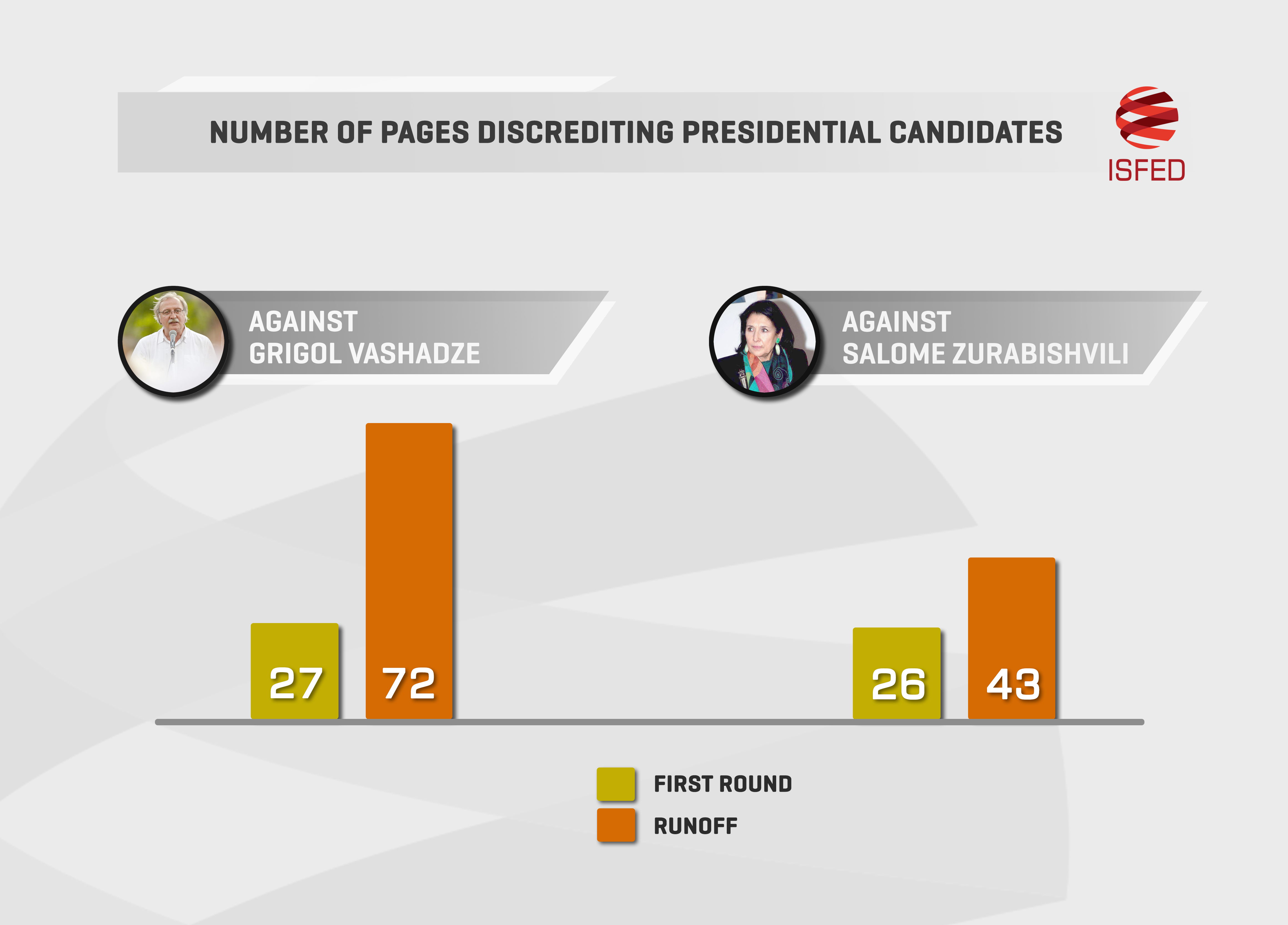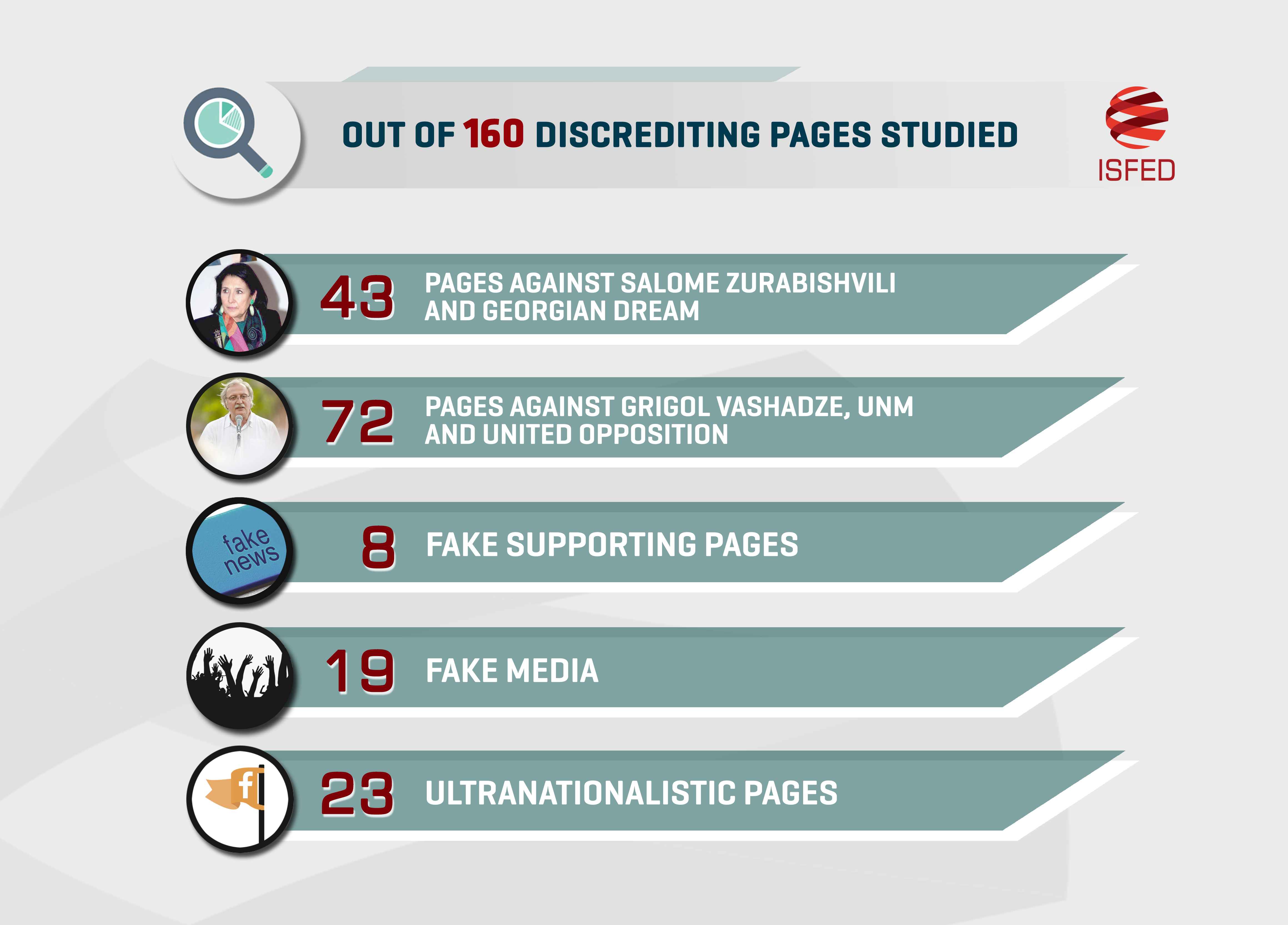ISFED Monitors Social Media Around 2018 Presidential Election

For the October 28, 2018 presidential election in Georgia, the International Society for Fair Elections and Democracy (ISFED) conducted a parallel vote tabulation (PVT) and general pre-election observation, monitoring abuse of administrative resources, incidents of intimidation and harassment, and the preparation of electoral administration. The PVT played an important role in assessing the integrity of election day processes and helped to verify official election results, showing the need for a runoff between the top two candidates, and the long-term observation allowed ISFED to identify problems and issue recommendations for improvement prior to election day. However, given emerging issues and concerns, ISFED also used the 2018 election to pilot a new initiative - monitoring social media during the pre-election period.
ISFED's social media monitoring effort used a new tool called Fact-a-lyzer that was created especially for citizen election monitoring groups. The software works to ingest, aggregate, and monitor the content of posts on public Facebook pages for parties, candidates, local governments, and civil servants. Using the tool, ISFED’s set of social media monitors assigned tags to the content, such as ‘anti-immigration’ or ‘sponsored’, which, in turn, allowed ISFED to identify and analyze trends in content as published in their first and second reports.
In addition to the official pages of candidates and parties, ISFED tracked pages devoted to discrediting candidates and parties as well as narrative pages that promoted certain viewpoints. These pages contained a higher amount of sponsored posts than official pages, however the spending on sponsored content was not officially declared as a contribution to any campaign. According to Georgian law, these are illegal donations and such a pattern is signaling that the funds may have been coming from dubious sources. As they monitored Facebook pages, ISFED also uncovered attacks on civil society and NGOs. ISFED also took a closer look at the behavior of the different pages discrediting candidates and the electoral process. The data showed that posts shared on these anonymous pages were similar in content and formatting, suggesting an organized effort. This monitoring of the election campaign showed that social media was integral to spreading false and damaging information and could be used as a tool for circumventing legal restrictions on political financing.

ISFED’s social media monitoring initiative proved to be very timely during the presidential election. Negative campaigning and harsh rhetoric were distinct features of the electoral campaign in Georgia, reaching its peak ahead of the runoff election. Facebook was a key vehicle used to wage smear campaigns, contributing to high polarization. ISFED found that discrediting Facebook pages targeting the two presidential candidates tripled in number ahead of the presidential runoff on November 28, 2018. Tactics used between the first and second rounds also included deceptive methods, such as the use of false media agency pages posing as media outlets and fake supporting pages created to discredit the very candidates they pretended to be supporting.
ISFED intends to conduct further research and analysis on the data collected from the social media monitoring and to develop recommendations on how best to address the negative challenges that social media brings to the electoral process. ISFED also intends to analyze lessons learned and share experiences with other citizen observer groups through developing guidelines on social media monitoring.
 GNDEM
GNDEM